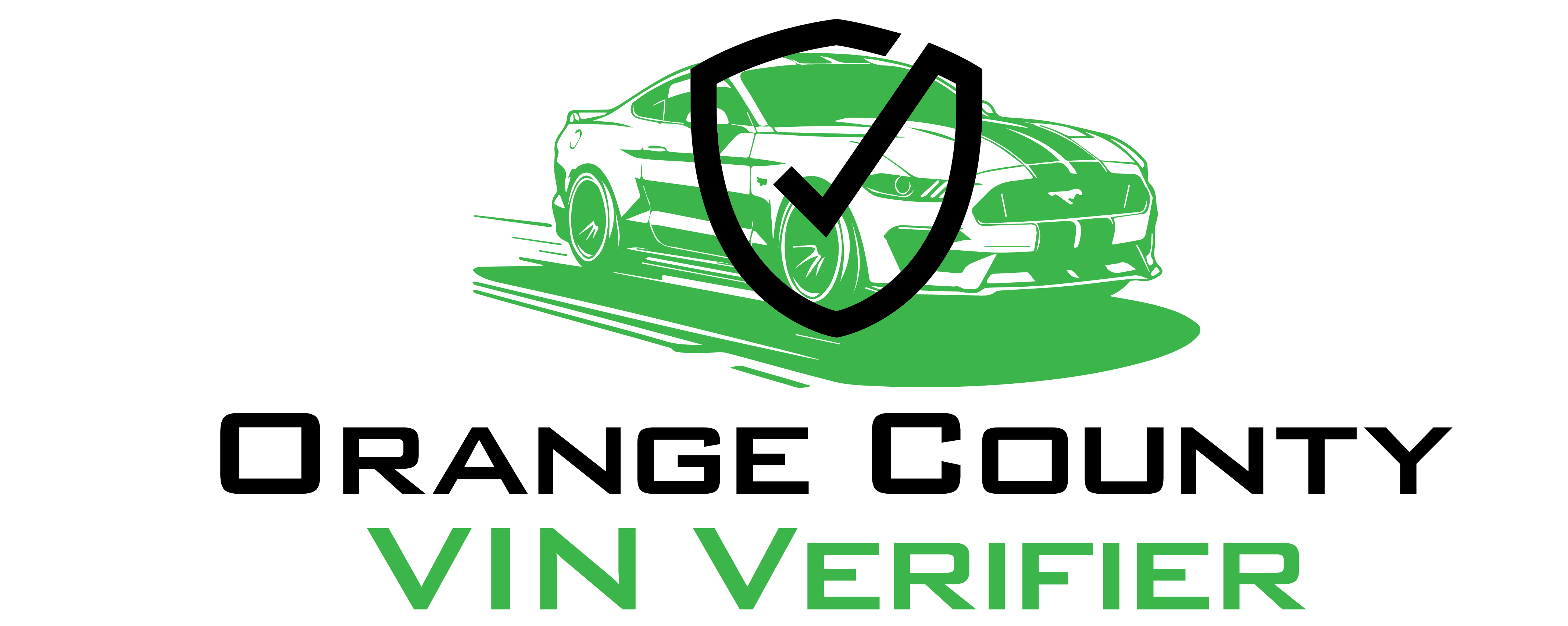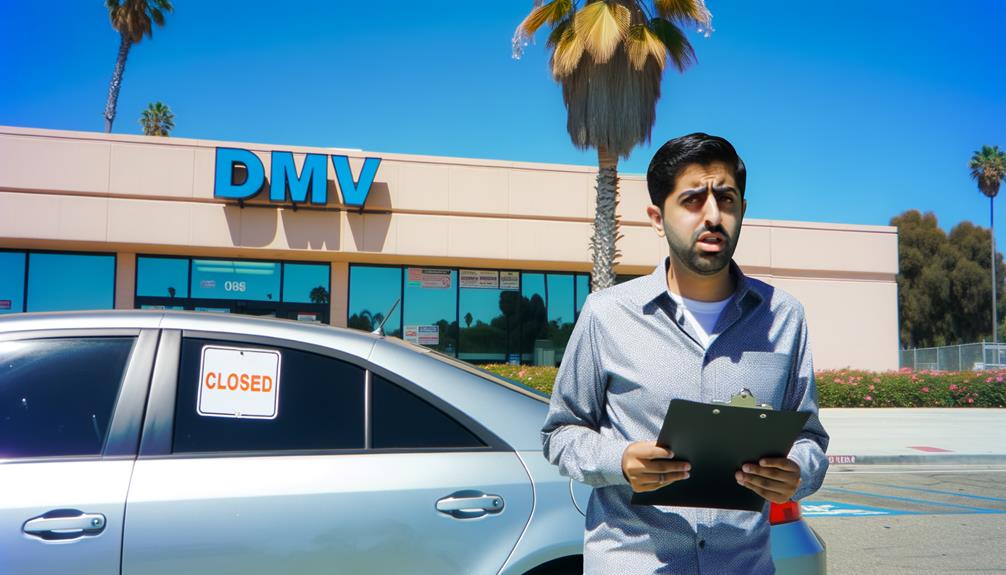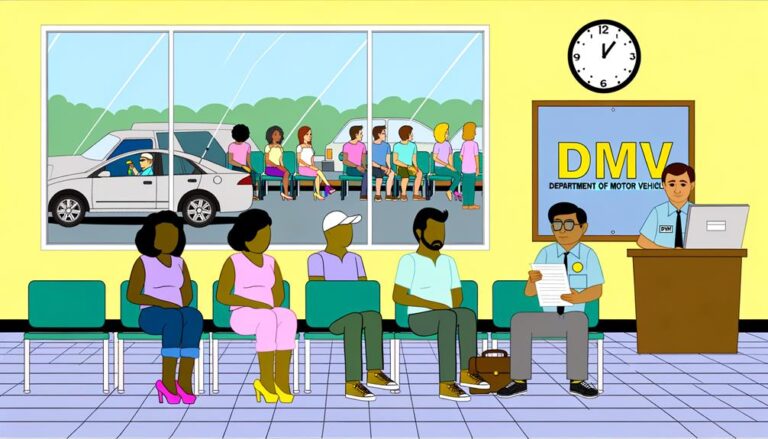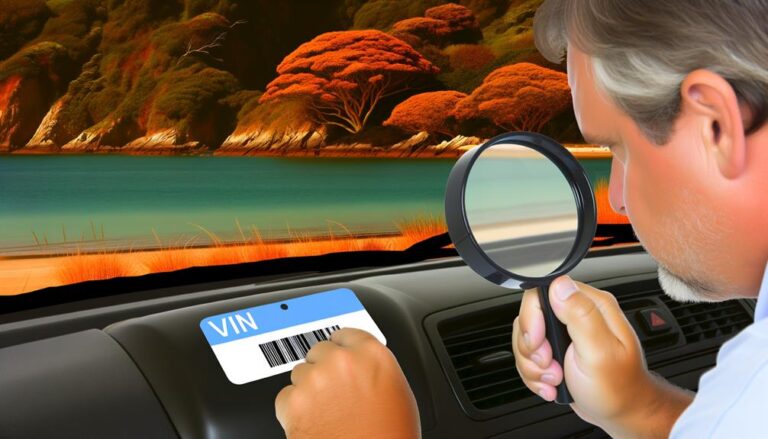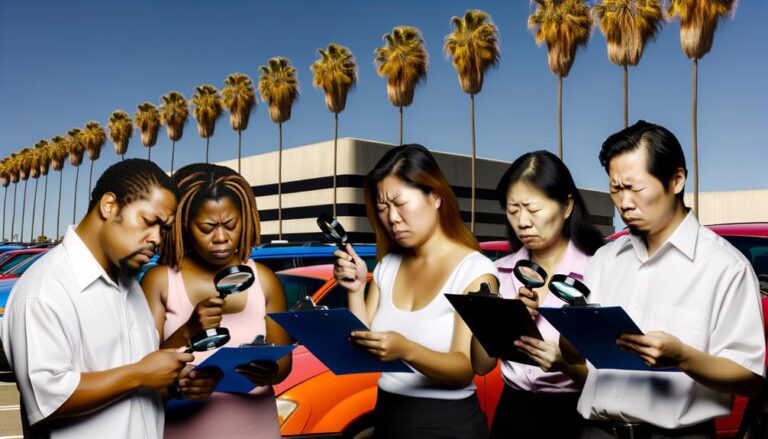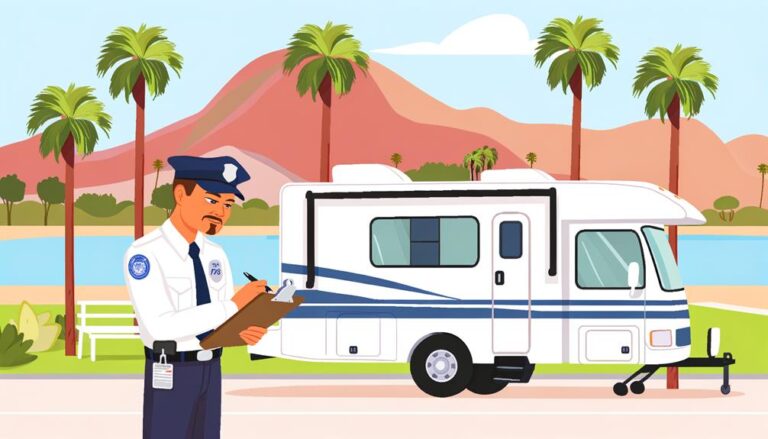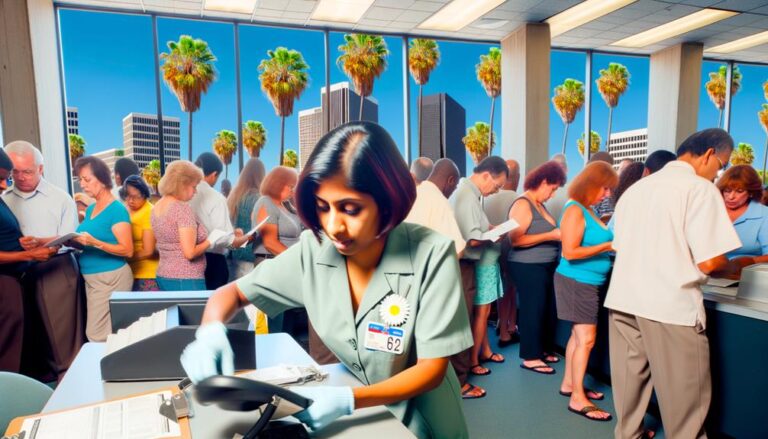If your VIN verification in Orange County fails, it's important to promptly identify and address the specific issues. Start by gathering all related documentation—vehicle title, bill of sale, and previous verification attempts—and confirm that your vehicle's engine number matches the VIN. Contact a licensed verifier or your local DMV to understand the exact reasons for the failure. Address these discrepancies accurately before scheduling a re-verification to avoid subsequent failures. Accurate and detailed documentation is essential in streamlining this process. Depending on the complexities involved, seeking further clarification may uncover additional insights and proven solutions for compliance.
Understanding VIN Verification
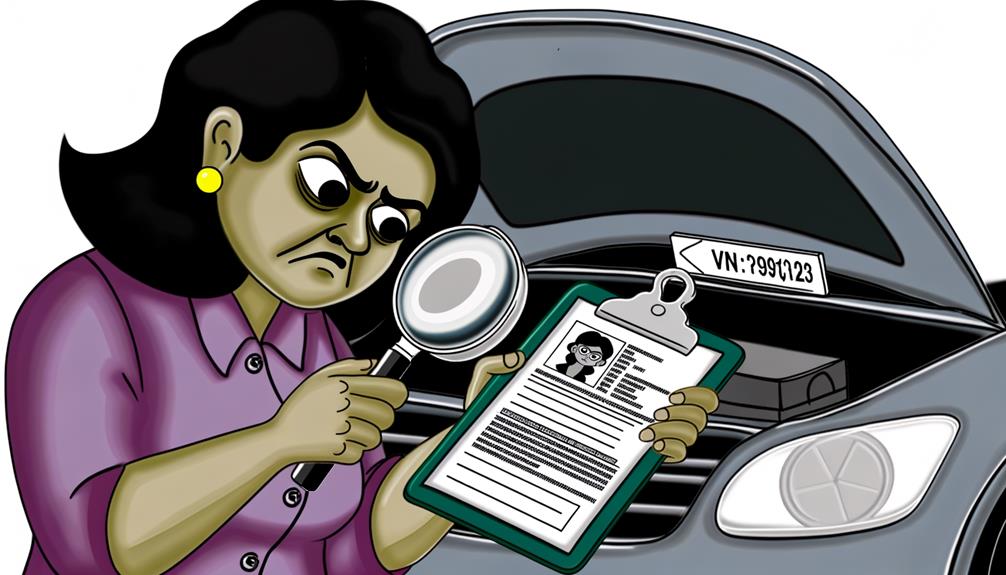
Understanding VIN verification is crucial when dealing with vehicle registration and compliance. This mandated physical inspection, conducted by the California DMV or authorized registration service, ensures that your vehicle's identification number aligns with DMV records. The process is essential in preventing theft and fraud, safeguarding your freedom to own and operate your vehicle without legal complications.
During VIN verification, an official completes the REG31 form, which records the vehicle's year, make, model, body type, and VIN location. You'll need this verification for several scenarios: registering vehicles from out-of-state, reintroducing vehicles missing from DMV records, or resolving discrepancies between your title and VIN.
It's a straightforward but critical step in confirming your vehicle's identity and ensuring compliance with registration requirements.
If you're faced with a failed VIN verification, understand it's not the end of the road. This outcome doesn't assess the vehicle's history but focuses strictly on identity verification.
Being proactive and understanding the verification process can significantly smooth your path to resolving any issues, ensuring your vehicle meets all necessary legal and regulatory standards.
Common Reasons for Failure
Why might your vehicle fail a VIN verification? Understanding these common pitfalls can help you avoid the disappointment of a failed VIN verification, ensuring you maintain your freedom to drive legally in California. Here are the primary reasons that often lead to verification failure:
1. Mismatched Engine and VIN Numbers: If the engine number on your vehicle doesn't match the VIN, the California DMV or a certified vehicle verifier will likely flag this issue. This discrepancy requires additional documentation or further inspections to resolve.
To ensure accuracy, consider utilizing private VIN verification services which can provide detailed checks and assistance in correcting discrepancies before official submission.
2. Stolen Vehicles: Vehicles identified as stolen in the DMV system will immediately fail VIN verification. The VINs of such vehicles are flagged, making it impossible to pass the inspection until cleared.
3. Absence of Federal Certification Label: Any vehicle missing the Federal Certification Safety Label is deemed incomplete and ineligible for verification. This label is crucial as it confirms the vehicle's compliance with safety standards.
4. Revived Salvage Vehicles: Vehicles that have been revived from salvage status must be verified directly by the CHP officer or at a DMV office. Attempts to verify through other channels will result in a failed VIN verification.
Understanding these points helps you prepare effectively for a successful verification process.
Preparing for Re-Verification
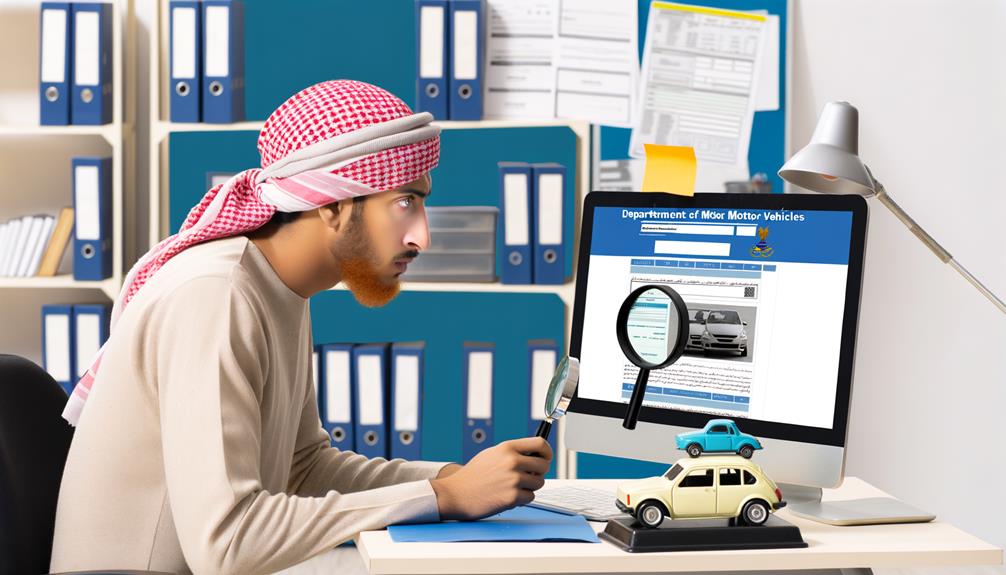
Begin your preparation for re-verification by gathering all necessary documentation, such as the vehicle title, bill of sale, and any prior VIN verification records. Ensuring that you have these documents in order will streamline the process and demonstrate your commitment to rectifying the previous failure.
Next, confirm that your vehicle meets all specified requirements. Check that the engine number matches the documentation and that all labels are correct and intact. Discrepancies in these areas are common reasons for initial verification failures and must be addressed before the inspection.
You should also contact a licensed verifier or the DMV to discuss the specific reasons for the failed VIN verification. Understanding these details will guide you in making the necessary adjustments and prevent future complications.
This step is crucial as it provides clarity and direction, ensuring that your vehicle is perfectly prepared for the next inspection.
Choosing the Right Verifier
After ensuring your vehicle is fully prepped for re-verification, the next step is choosing the right verifier. This choice is crucial to ensure your licensed vehicle smoothly passes the California DMV's requirements. Here's how to confidently select a verifier that meets your needs:
- Verify Licensing and Insurance: Always confirm that your chosen verifier is licensed and insured. This compliance isn't just about legality; it's about ensuring that the VIN verification done is recognized and trusted by the California DMV.
- Consider Convenience and Service Type: Assess whether mobile VIN verification or in-office services suit your schedule and lifestyle. For instance, Quick VIN Verifications offers both, charging $125 for mobile and $75 for in-office services.
- Utilize Membership Benefits: If you're a member of AAA, use their VIN verification services, which might be included at no extra cost. This can provide a hassle-free verification process.
- Read Client Reviews: Check previous client testimonials to gauge the reliability and efficiency of the vehicle verifiers. Experience with specific vehicle types enhances their ability to handle unique challenges, thereby reducing the risk of another failed verification.
Choosing the right verifier is a pivotal step in ensuring your vehicle meets all requirements for a successful VIN verification.
Navigating DMV Processes
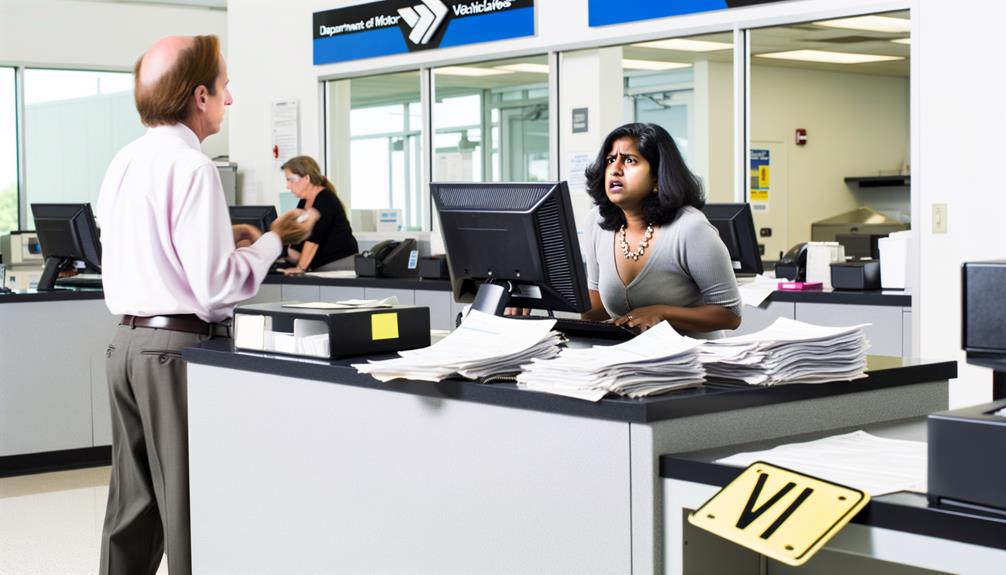
If your initial VIN verification fails, it's crucial to precisely follow the DMV's procedures for a successful re-verification. First, request a detailed explanation for the rejection, focusing on specific discrepancies like mismatched engine numbers or missing documentation. This clarity will help you understand exactly what needs to be corrected.
You'll need to gather relevant documentation, such as purchase receipts or previous registration papers, to address these issues. Ensuring that all paperwork meticulously corresponds with your vehicle details is essential for the next step.
Consider visiting a different California DMV office for the re-verification. Different locations might offer varying levels of assistance and expertise, which could be beneficial.
Additionally, if the California Highway Patrol (CHP) is involved, especially in cases concerning a salvaged title or secondary inspections, reaching out for their guidance can be crucial. They can provide specific insights into what's required for your vehicle to meet the necessary standards.
Before scheduling another VIN verification, make sure any repairs or modifications on your vehicle are well-documented and meet all eligibility requirements. Proper preparation and adherence to these guidelines will increase your chances of a successful VIN verification on your next attempt.
Legal and Compliance Issues
Often, a failed VIN verification in Orange County leads directly to a referral to the California Highway Patrol (CHP) for a more thorough inspection, particularly when discrepancies between engine numbers and VINs occur.
You're thrust into a realm where precision and adherence to regulations are paramount.
Navigating this challenge involves several legal and compliance steps to ensure you're aligned with state requirements:
- Gather Documentation: Collect all pertinent documents, such as receipts for engine replacements or modifications. This proves modifications were legally made, which is crucial during the CHP's inspection process.
- Communicate Clearly: Engage actively with both the California DMV and CHP. Clear communication can often mitigate misunderstandings and streamline the verification process.
- Maintain Records: Keep all related records organized and accessible. In cases of failed verifications, these documents are vital for re-inspection and resolving any disputes.
- Stay Informed: Understand the specific legal compliance requirements related to VIN verification. This knowledge is your shield against potential legal complications.
Adhering to these steps not only facilitates the legal compliance required but also empowers you to navigate this process with greater confidence and freedom.
Additional Resources and Help
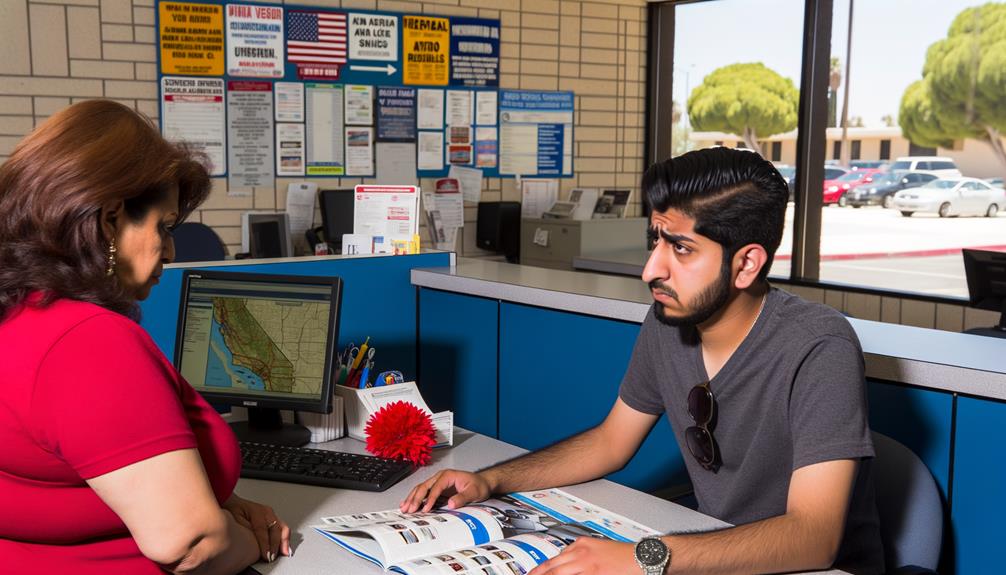
Should your VIN verification fail in Orange County, exploring alternative DMV or CHP locations may offer better assistance and outcomes. Each office may handle your situation with a different level of expertise or resource availability.
It's crucial to keep detailed documentation of your vehicle's history, including purchase receipts and any modifications. This verification paperwork is vital when you're seeking resolution at another California DMV or CHP location.
For specific cases like motorcycles with engine modifications or missing documents, you might need a DMV inspection. Unfortunately, mobile services such as Quick VIN Verification, while convenient, can't assist in these scenarios. They provide flexibility for straightforward cases across multiple counties, but be aware that some situations must be handled directly at DMV or CHP offices.
In the case of salvage or junked vehicles, the process becomes even more stringent. Only the California DMV or CHP can conduct verifications for these categories, often requiring an in-depth review of verification paperwork and the vehicle's condition.
If you're directed to undergo this process, prepare for a more detailed investigation to ensure compliance with all state regulations. This ensures your freedom to operate the vehicle legally, without future complications.
Frequently Asked Questions
Why Can't My VIN Be Validated?
Your VIN might not validate due to discrepancies, common issues like missing documentation, or non-compliance with DMV procedures. Address these through verification process reviews and follow the resolution steps to rectify errors or omissions.
What Do They Check for VIN Verification in California?
In California, VIN verification includes checking discrepancies, ensuring adherence to inspection requirements, and confirming vehicle ownership for title transfer and registration issues, all in compliance with state regulations.
Can CHP Do a VIN Verification?
Yes, the CHP can conduct a VIN verification. They'll check your vehicle's identification against DMV records, ensuring all inspection requirements align with title and registration challenges. It's crucial for resolving any discrepancies.
What if My VIN Is Invalid?
If your VIN is invalid, it indicates discrepancies in vehicle history or title problems. You'll need to verify ownership, address registration issues, and meet inspection requirements to resolve these concerns effectively.
